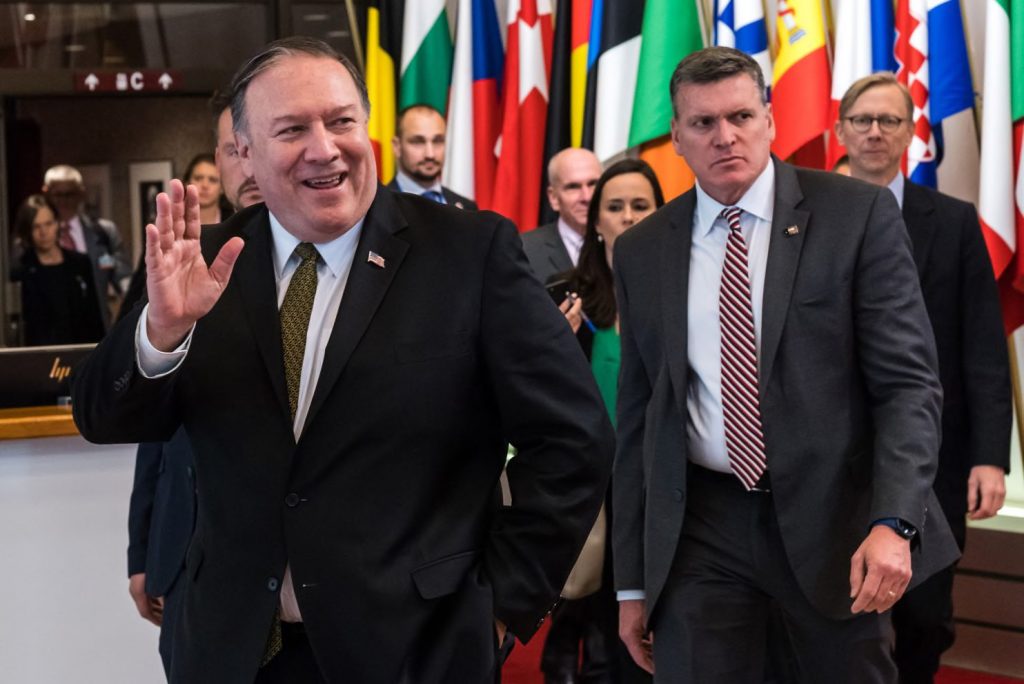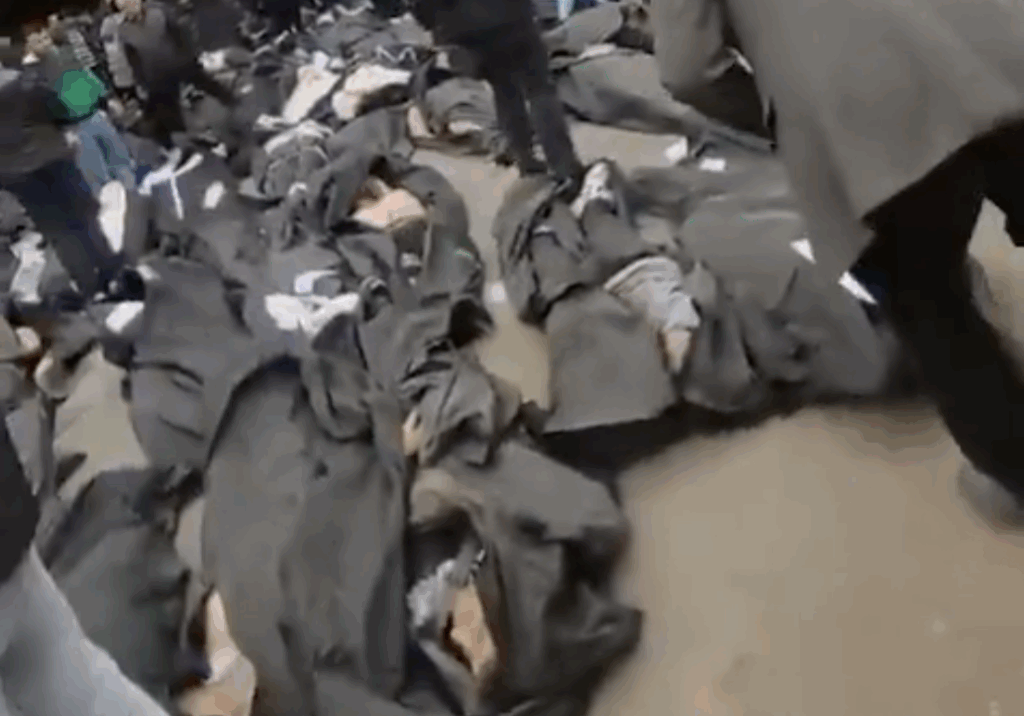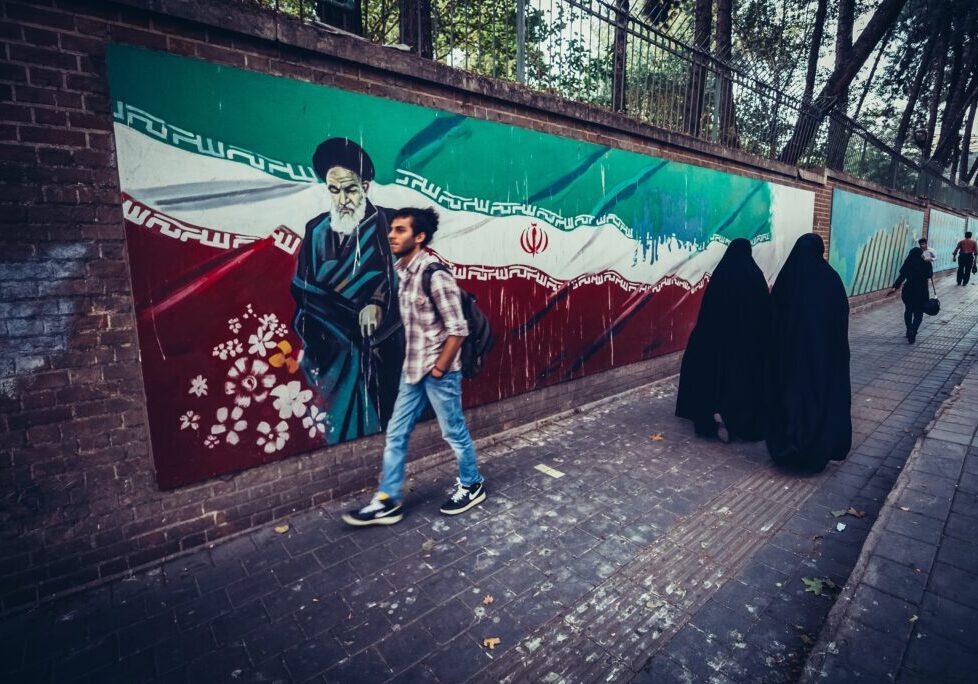Australia/Israel Review
Europa Europa: Soft power, please
May 31, 2019 | Douglas Davis

Last year, when the United States withdrew from the 2015 Joint Comprehensive Plan of Action (JCPOA) nuclear agreement with Iran and imposed sanctions on Iran, the European signatories stood by the pact – and urged the Islamic Republic to remain committed to the deal. And when the Iranians demanded that Europe compensate them for the economic consequences of the sanctions, the Europeans agreed.
Yet both Europe and Iran were dreaming if they believed Europe could deliver. And they knew it. The mullahs’ hope was they would be able to wait out the Trump presidency until 2020, when they expected a more compliant Democratic White House would reverse the measures.
Last month, the US Administration turned the screw: President Donald Trump ended “waivers” which had previously allowed China, India, Japan and others to ignore the sanctions regime and import oil from Iran. And there was more: sanctions were imposed on Iran’s export of iron, steel, aluminium, and copper products. At the same time, Washington revoked two waivers that had allowed Iran to export excess enriched uranium and heavy water that it produced. Last but not least, the Americans designated the powerful Islamic Revolutionary Guard Corps (IRGC) as a terrorist organisation to further degrade the Iranian economy.
Despite a year of absorbing the pressure of sanctions, Teheran had been continuing its business-as-usual activities, heaping assistance on the Shi’ite Houthi militia in their insurgency against the Yemeni regime, funding and arming Shi’ite militias in Iraq, providing similar services for Hezbollah in Lebanon, and Palestinian Islamic Jihad and Hamas in Gaza, and defending the regime of Bashar al-Assad in Syria.
Last month, however, all that changed. Washington revealed it had received reports, apparently from Israeli intelligence, that the Iranians were planning to attack American interests in the region. Such attacks could be launched directly, executed via proxies or delivered by drones, missiles, or through cyber strikes. Among the principal potential targets are Israel, US troops in Iraq and Syria, as well as assets in the Gulf States and the Strait of Hormuz, which serves as the essential conduit for much of the West’s oil supplies from the Gulf. Any clash between Iran and the US – whether in the Gulf, Iraq, Syria, or the Strait of Hormuz – would not impact Israel directly, but there is little chance that Iran would leave Israel out of such a conflagration.
In mid-May, as the rhetoric reached boiling point, the United States despatched military forces to the Middle East, including the USS Abraham Lincoln aircraft carrier, B-52 bombers capable of carrying nuclear payloads, and a Patriot anti-missile battery.
The build-up was intended to carry the message that America would respond to an Iranian escalation. “We will make Iran’s foreign policy prohibitively expensive,” noted one senior US official.
Within days, reports emerged from the United Arab Emirates and Saudi Arabia of an attack on four merchant ships and oil tankers. The attacks occurred near the United Arab Emirates, as the tankers prepared to enter Gulf waters. There were no claims of responsibility and no public accusations, though Washington suspects the attacks were mounted by either the Houthis or Hezbollah, acting at the behest of Iran.
Meanwhile, the Americans have unleashed a charm offensive in Europe in an effort to persuade Germany, France and Britain – the so-called E3 who signed the JCPOA – to disentangle themselves from their embrace with Teheran. During a visit to London last month, US Secretary of State Mike Pompeo appealed to the trio “not to soothe the ayatollahs” by creating financial instruments that potentially allow trade to continue with Iran.
European leaders agree that Iran’s behaviour is problematic but maintain, rather disingenuously, that the 2015 deal should be preserved as the best means to prevent a nuclear arms race in the region. The JCPOA, brokered with the US, Britain, France, Germany, China and Russia, was former US President Barack Obama’s key foreign policy achievement but is vigorously opposed by Israel and Saudi Arabia.
After the Gulf tanker attack in May, British Foreign Secretary Jeremy Hunt warned that “We are very worried about the risk of a conflict happening by accident with an escalation that is unintended.”
Hunt’s blunt warning that either side could mistakenly set off a conflict underlines the difference between the US and Europe over the JCPOA. He called for “a period of calm to make sure everyone understands what the other side is thinking.”
“We must make sure we don’t end up putting Iran back on the path to re-nuclearisation, because if Iran becomes a nuclear power its neighbours are likely to want to become nuclear powers. This is already the most unstable region in the world and it would be a massive step in the wrong direction.”
The truth is that Europe – economically strapped, militarily flaccid and politically pacific – is unhappy about the return of American heavy weaponry to the Middle East. The lessons of the Iraq war are still fresh.
The Europeans would much rather continue deploying “soft power”, even if that has the ultimate effect of setting Iran on an accelerated path to nuclear weapons capabilities. It is, after all, a path many privately concede is inevitable.






